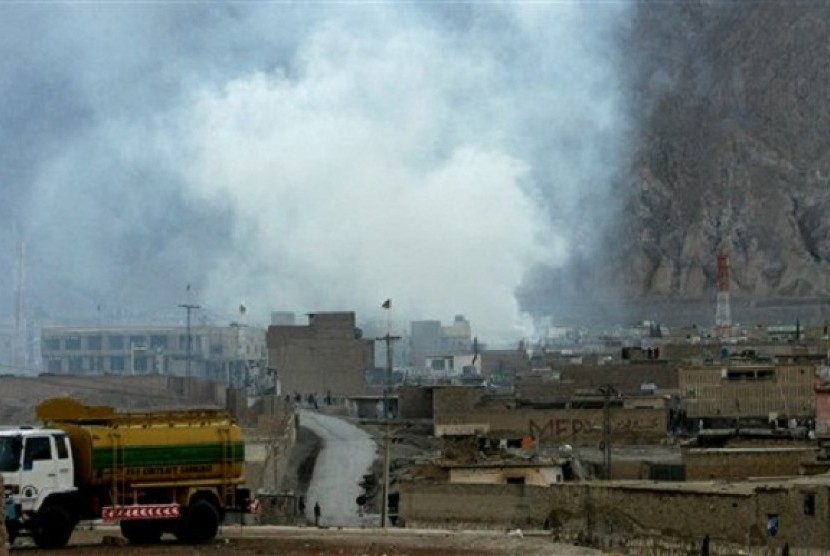REPUBLIKA.CO.ID, QUETTA - A bomb ripped through a crowded vegetable market in a mostly Shiite neighborhood in a southern Pakistani city Saturday, killing at least 63 people and wounding some 180, some critically, in a horrific attack on the country's minority Muslim sect. Police raised the death toll several times and said many of those wounded in the explosion in Quetta remain in critical condition. The blast left many victims buried under rubble, but police said they did not know how many.
It was the deadliest incident since bombings in the same city killed 86 people earlier this year and led to a dayslong protest that eventually toppled the local government. Shiites, a minority in this Sunni Muslim dominated country, have been increasingly attacked by militant groups who view them as heretics and non-Muslims.
Senior police officer Wazir Khan Nasir said the bomb, set off in a residential suburb, was detonated by remote control. Another officer, Samiullah Khan, said police were investigating whether the bomb was planted in a rickshaw parked in the crowded vegetable market. He said the bomb was detonated while dozens of women and children were shopping for the evening meal. Local residents rushed the victims to three different area hospitals.
Television footage of the scene showed the rubble of the destroyed buildings with fruits and vegetables from what just minutes earlier was a lively market littered across the ground next to destroyed street carts.
Members of the minority Shiite sect took to the city streets in angry protest, blocking roads with burning tires and throwing stones at passing vehicles. Many also started firing into the air in an attempt to keep people away from the area in case there was a secondary explosion. Sometimes insurgents stagger the explosions as a way to target people who rush to the scene to help and thus increase the death toll.
Quetta is the capital of Baluchistan province, where the Shiite minority has been attacked several times in recent months. Baluch nationalist groups are fighting an insurgency there to try to gain a greater share of income from the province's gas and mineral resources. Islamic militants and the banned sectarian group Lashker-e-Jhangvi are also active in the province.


